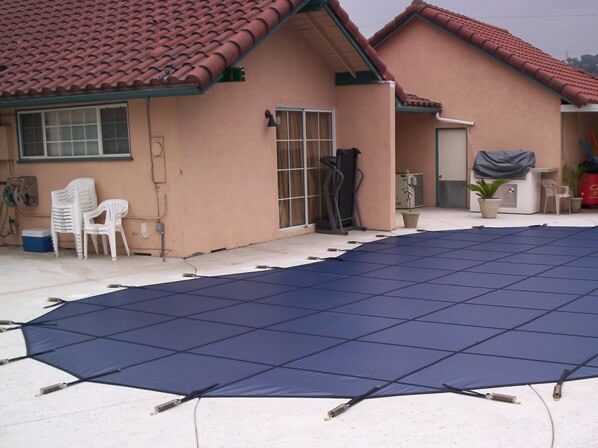Pool covers for inground and above ground pools come in various forms and styles. They can be used to meet various needs, and are made of varying materials with different benefits and costs. Similar to the logic behind choosing what kind of pool design you want, the same applies to choosing a swimming pool cover that works best for your pool and your specific needs.
Let’s take a look at the various types of pool covers, their use, and pros and cons of each.
Types of pool covers
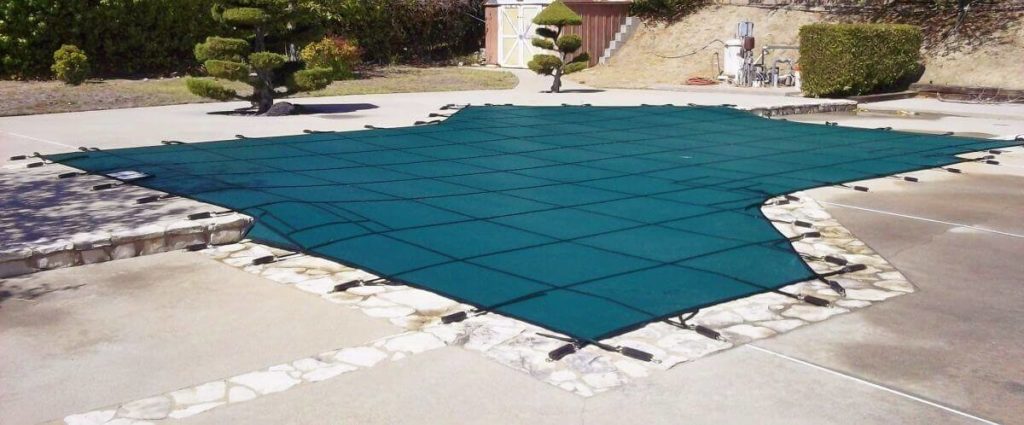

Safety Covers (Retractable, Mesh or Solid)
Safety covers are intended to keep people and pets safe and they can be either mesh or solid.
Pool owners who anticipate having dogs or children in their home may be interested in safety covers and the biggest difference between them is the price difference.
Mesh covers are custom made to the exact size and shape of your pool.
The mesh material is strong enough to walk over it if necessary, and rainwater will pass through so it won’t accumulate on the top.
They range between $200 to $22,000 depending on which type you choose.
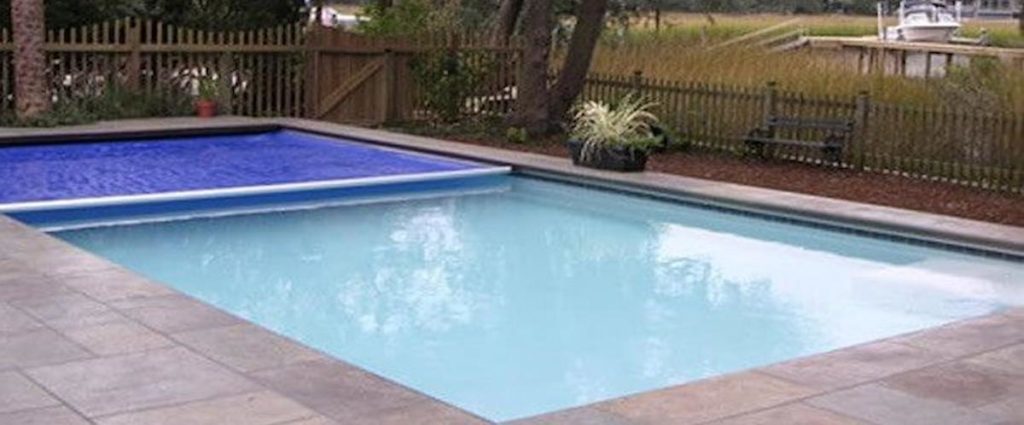

Retractable Covers (Automatic)
Who doesn’t like a push button solution? Retractable covers have a motor and mechanism that allows you to automatically open and close with the push of a button when you are ready to use your pool and can be used with an indoor or outdoor pool.
Retractables help minimize evaporation, retain heat, act as a safety device to keep people and pets from falling into the pool, and help reduce chemical use by preventing debris from entering the water. On the flip side, if you are in a warmer climate, retaining heat can also make your water less comfortable.
They are also more expensive, to the tune of anywhere from $12,000 to $22,000 depending on the size of your pool and the brand, although there are also manual options that are cheaper.
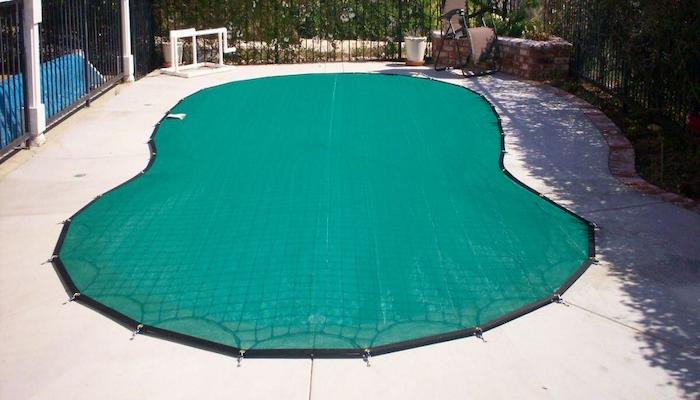

Mesh (Leaf) Covers
Mesh covers are also good for keeping leaves and other large debris out of the water but they do allow water and dirt to pass through to the pool.
If mesh covers are used for closing your pool, the extra water can dilute your water chemistry and cause your water to be cloudy or hazy when you open your pool.
Mesh covers are available in several different materials and are capable of supporting a range of weight but they are not always safety covers so be sure to check to make sure it meets your specific needs.
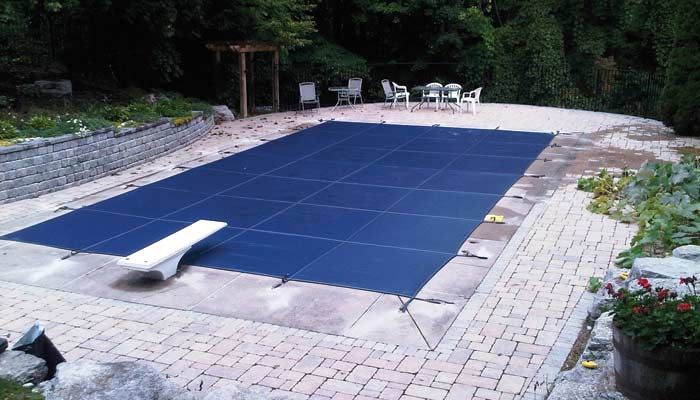

Solid Covers
Solid covers are common in climates where pool owners close and winterize their pools for a portion of the year. They have the same pros as the automated covers and mesh covers, but like mesh they aren’t as easy to use as automated retractable covers.
Another key difference between solid and mesh is that solid covers do not allow water to pass through and it builds up on the cover so you will need to use a pump on top to keep the water pumped off while the pool is covered. The lifespan is also a little more than half that of a mesh cover.
Solar Covers (Blankets)
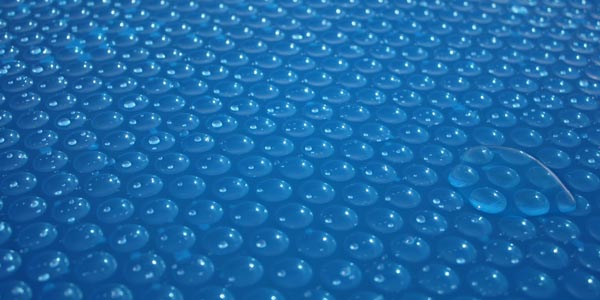

Pool owners may choose to use a solar cover if they live in an area where they can benefit from extending the pool season by raising and maintaining temperatures through a combination of solar heat and reduction in heat loss from the pool.
Solar covers come in many different forms, and some aren’t even solid but are disks that sit in your pool to cover the surface.
No matter which type of cover you use, Sutro pool chemical monitor system can help you keep your pool water clear and safe by checking your pH, alkalinity, and chlorine levels 3 times per day and recommending adjustments when needed.
